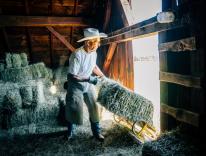I
As I said, I’m a lawyer. Technically speaking,
is a head blown to pieces by a smart bomb a beheading?
II
Infinitely compressible, yet expandable time,
and curved space, in the preface to Lucretius’s
first book of De Rerum Natura is a tribute to Venus,
in the last book a description of the plague.
III
Estimated one to two thousand militia, gangs,
really, of fifteen to three thousand
armed killers, in separate, overlapping
networks, difficult to differentiate, and now this,
to quote an anonymous State Department source,
what no one could have predicted, this phenomenon’s,
the caliphate’s, rise, nothing since the triumph
of the Vandals in Roman North Africa
this sudden, this incomprehensible.
IV
In the technocapital sphere
absolute principles of profit growth,
of value accumulation, the absolute freedom
to recombine the production of raw materials
into virtual information
in spaces of time, info-time.
V
A theological-political fragment,
a mythographical, scriptural, text,
and sorrow, to understand the meaning
of sorrow, Saint Sorrow,
the addressee of my avowal,
Saint Sorrow’s stern vigil necessary to keep.
VI
Hyperviolence is the word, of epic proportions,
a species thing, the point at which
violence turns into ontology,
these endless ambitious experiments of destruction,
a species grief.
VII
Quite often, almost daily,
in fact, I have strong impressions of eternity,
my ancestors are there, too,
in the shadows—my mother, my father,
grandmothers, grandfathers, whom I refuse
to let perish—whispering to me to be careful.
VIII
What’s that about? Someone I heard say
that to say that Hispanics are East Asian
is sort of like saying that Arabs are white.
IX
Hear that, that man’s face being stepped on,
skull being cracked by the baton stick, head
slammed against the concrete edge, blood
in his eyes, body limp, in the process now
of being handcuffed.
X
I am speaking of a law, now, understand,
that point at which bodies locked in cages
turn into ontology, the point at which
structures of cruelty, force, war,
turn into ontology. The analog
is what I believe in, the reconstruction
of the phenomenology of perception
not according to a machine,
more, now, for the imagination to affix to
than ever before.
